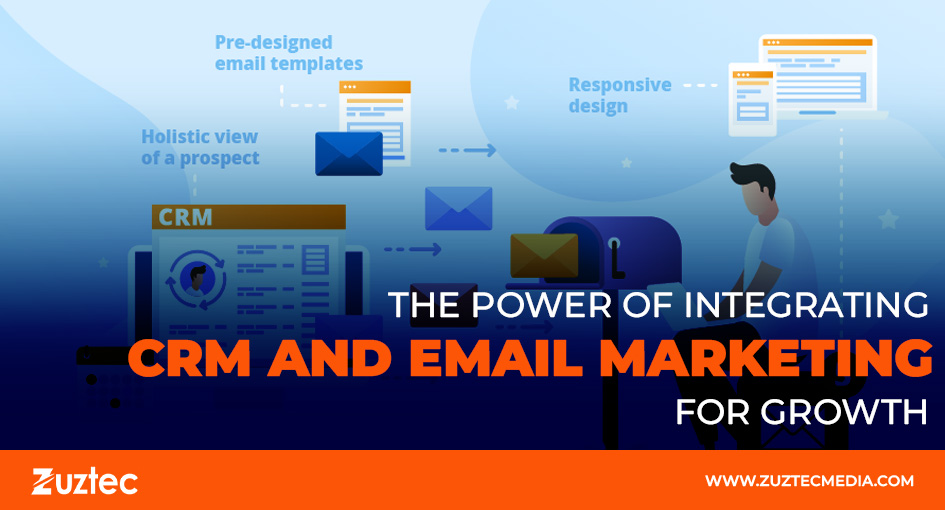
The Power of Integrating CRM and Email Marketing for Growth
In today’s competitive business landscape, building strong customer relationships is more important than ever. Two of the most effective tools for achieving this are CRM and email marketing. While each has its unique strengths, combining them can create a powerful synergy that drives customer engagement, boosts sales, and fosters long-term loyalty. By integrating these systems, businesses can streamline their marketing efforts, deliver personalized experiences, and gain valuable insights into customer behavior.
Customer Relationship Management (CRM) systems are designed to manage interactions with current and potential customers, while email marketing focuses on communicating directly with an audience through targeted campaigns. When used together, CRM and email marketing enable businesses to create highly personalized and data-driven campaigns that resonate with their audience. This article explores the benefits of integrating these tools, the key features to look for, and how businesses can leverage them to achieve their goals.
Benefits of Combining CRM and Email Marketing
Enhanced Personalization
One of the most significant advantages of integrating CRM and email is the ability to deliver highly personalized messages. CRM systems store valuable customer data, such as purchase history, preferences, and interaction history. By leveraging this data, businesses can create email campaigns that are tailored to individual recipients.
For example, an e-commerce business can use CRM data to send personalized product recommendations based on a customer’s past purchases. Similarly, a service-based business can send targeted emails offering discounts on services that a customer has shown interest in. This level of personalization not only improves engagement but also strengthens the relationship between the brand and its customers.
Improved Customer Segmentation
Effective email marketing relies on sending the right message to the right audience. CRM systems make it easier to segment customers based on various criteria, such as demographics, behavior, and purchase history. This allows businesses to create targeted campaigns that address the specific needs and interests of each segment.
For instance, a fitness brand might segment its audience into categories such as new subscribers, loyal customers, and inactive users. Each segment can then receive tailored emails, such as welcome offers for new subscribers, exclusive deals for loyal customers, and re-engagement campaigns for inactive users. This targeted approach increases the likelihood of conversions and reduces the risk of unsubscribes.
Key Features to Look for in CRM and Email Campaign Tools
Seamless Integration
When choosing tools for CRM and email, it’s essential to ensure that they integrate seamlessly. Many modern CRM platforms, such as Salesforce and HubSpot, offer built-in email marketing capabilities or integrate with popular email marketing tools like Mailchimp and Constant Contact. This integration allows for the automatic transfer of data between systems, eliminating the need for manual data entry and reducing the risk of errors.
For example, when a customer makes a purchase, the CRM system can automatically update their profile and trigger a personalized follow-up email.
Advanced Analytics and Reporting
Both CRM and email marketing tools offer analytics and reporting features that provide valuable insights into campaign performance and customer behavior. By combining these insights, businesses can gain a deeper understanding of what works and what doesn’t.
For instance, email marketing analytics can reveal which campaigns have the highest open and click-through rates, while CRM analytics can show how these campaigns impact customer retention and sales. By analyzing this data, businesses can refine their strategies and achieve better results over time.
Tips for Leveraging CRM and Email together
Automate Workflows
Automation is one of the most powerful features of integrating CRM and email marketing. Businesses can set up automated workflows that trigger emails based on specific customer actions or milestones.
For example, a welcome email can be sent automatically when a new customer signs up, followed by a series of onboarding emails. Similarly, a cart abandonment email can be triggered when a customer leaves items in their online shopping cart. These automated workflows ensure that customers receive timely and relevant communications, increasing the likelihood of conversions.
Focus on Customer Lifecycle
Understanding the customer lifecycle is crucial for creating effective email campaigns. CRM systems provide insights into where each customer is in their journey, from awareness to purchase and beyond. By aligning email campaigns with the customer lifecycle, businesses can deliver the right message at the right time.
For example, a new subscriber might receive educational content to build trust, while a repeat customer might receive loyalty rewards or exclusive offers. This approach not only improves engagement but also encourages customers to move further along the lifecycle.
The integration of CRM and email marketing offers businesses a powerful way to enhance customer relationships and drive growth. By combining the data-driven capabilities of CRM with the direct communication of email marketing, businesses can create personalized, targeted, and impactful campaigns. From improved segmentation and automation to advanced analytics and customer lifecycle management, the benefits of this integration are undeniable.
In a world where customers expect personalized and relevant interactions, businesses that leverage CRM and email are better positioned to succeed. By understanding the unique strengths of each tool and using them in harmony, businesses can build stronger relationships, increase customer loyalty, and achieve their marketing goals. The future of customer engagement lies in the seamless integration of technology and strategy, and CRM and email campaigns are at the forefront of this evolution.

